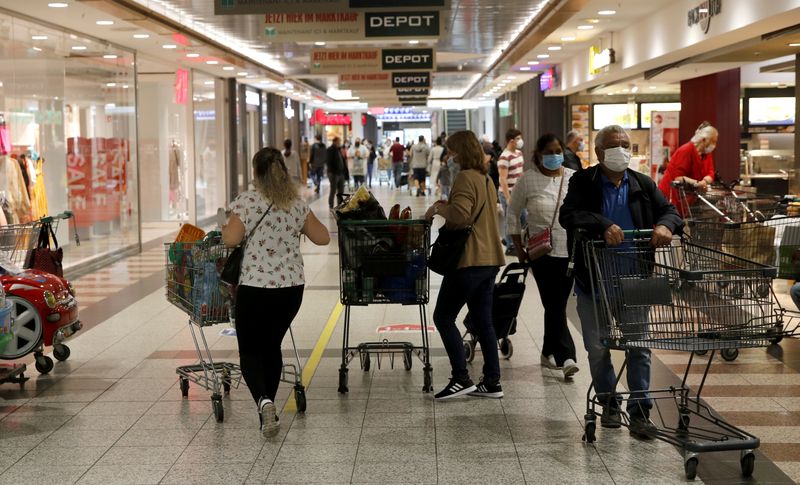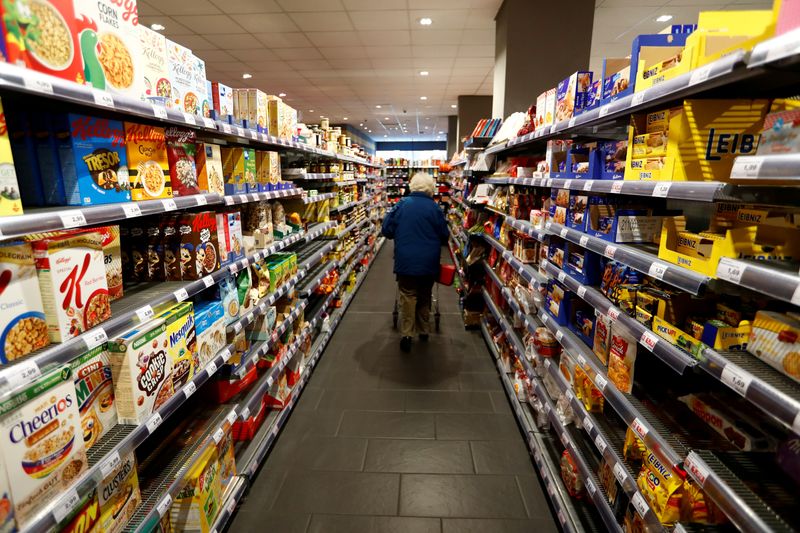BERLIN (Reuters) – German retail sales rebounded sharply in May and unemployment rose less than expected in June, data showed on Wednesday, signalling that an economic recovery from the impact of the coronavirus is gathering steam.
Retail sales rose by almost 14%, rebounding from a 6.5% drop in April, largely supported by online shopping as concerns about catching the disease kept many consumers away from stores.
Last month, the number of people out of work rose by 69,000, Labour Office figures showed – far less than the 120,000 forecast in a Reuters poll of analysts.
Europe’s largest economy has weathered COVID-19 better than most of its neighbours, helped by relatively soft lockdown measures that allowed some social and industrial activity to continue thoughout the peak months of the epidemic, as well as hefty rescue and stimulus packages.
The Ifo institute said on Wednesday the economy was likely to return to last year’s level of output at the end of 2021. “From now on, things are gradually improving again,” it said.
The government hopes a cut in value-added tax rates from July 1 to the end of 2020 will give consumption a further boost, and it has also introduced a short-time work scheme that allows firms to put employees on shorter hours during a downturn to keep them on the payroll.
Labour Office head Detlef Scheele said this initiative was having a stabilising effect on the jobs market, which he said nevertheless remained under pressure from the pandemic.
Wednesday’s figures meant that 2.943 million people were jobless in Germany last month, nudging the seasonally adjusted unemployment rate up to 6.4%.
Ifo said it expected the economy to have contracted 11.9% in the second quarter and forecast growth of 6.9% and 3.8% in the third and fourth quarters – translating into a contraction of 6.7% in 2020, Germany’s deepest recession since World War Two.
(Additional reporting by Riham Alkousaa and Thomas Seythal; editing by John Stonestreet)




















